Best places to exchange currency without paying huge fees
You're all set for your trip abroad, and the question comes up: where can I exchange foreign currency? In this article, we'll go through all the options & tips.

Holiday season can be expensive. One way to make sure you don't pay over the odds for your well earned break, is to think in advance about the best way to pay for things while you’re travelling. Many people choose to use debit or credit cards abroad. They're certainly a convenient and safe option, but they can be expensive if you fall foul of unexpected fees and charges. If you're using your bank card overseas, it's well worth avoiding some of these common problems, to make your money go further.
Read this guide to find out:
Wherever you're headed for your holiday, you can use your RBS credit or debit card to make purchases or withdraw cash. Just look for the Visa or Mastercard symbol. You can even use your contactless card, if a retailer has the contactless symbol displayed. Be warned though, while contactless technology is very popular in the UK some countries haven’t yet adopted it.
Using your RBS bank card overseas is just as simple as using it at home, but it’ll cost you more. You’ll find additional fees levied by your bank, and sometimes by local retailers or ATMs too.
Don't forget, cash is still the main form of payment in some countries. If you’re heading on holiday somewhere off the beaten track, you might find cards aren't widely accepted. Taking some local currency with you might be a sensible idea, too.
Whether you choose to spend abroad using your debit or credit card, you’re going to incur some fees.
To work out what you might be charged, firstly you need to know if your card is a Visa or Mastercard. These companies process transactions for the banks, so although your card is issued by RBS, it'll be either Visa or Mastercard who decide the exchange rate used for foreign purchases and cash withdrawals. You can find out easily which your card uses by looking for the symbol on the card itself.
So, let's look at how fees for overseas transactions work in practice. For example, let’s say you have a RBS Visa debit card. Firstly the exchange rate will be applied to whatever you're spending. Because you have a Visa card, the bank will apply the exchange rate being used by Visa on that day and figure out the cost of your purchase in GBP.
By and large, these exchange rates are pretty fair. There’s usually a small mark-up on top of the exchange rate you find when you search on Google. However, as long as you’re being charged in the local currency wherever you are, the margins are quite small. Be wary though, you run into incredible mark-ups under something called Dynamic Currency Conversion (DCC) if you’re charged in GBP. But more on that later.
If you're torn between using a Visa and a Mastercard while you're away, it's good to know that analysts believe that Mastercard tends to offer marginally better rates for international purchases. Don't panic though - the differences are fairly small and will vary depending on which currency you’re spending in. Check out how your card exchange rate compares to the real, mid-market rate, using an online currency converter.
The daily exchange rates being used between by Visa and Mastercard are on their websites below:
After applying any exchange rate markups, RBS then deducts a further cut for itself. This is known as a non-sterling transaction fee, a foreign purchase fee or a foreign cash fee.
If you’re taking money out of an ATM, there are further charges to pay - with RBS these are 2% or 3% depending on which card you use. Debit cards, at least, have a capped charge for ATM withdrawals - full details are below.
It doesn’t stop there, though. Even though RBS cap some of their charges, you'll still find that individual banks or ATM providers might levy their own fees on top of those your bank charges. This can be pricey.
Next comes DCC - a real bad guy when it comes to using your bank card overseas. It sounds harmless enough - you’re simply asked if you want your purchase to be processed in GBP instead of the local currency. Say no.
You'll see DCC nearly anywhere your card is accepted overseas - at an ATM, restaurant or store, for example. Choose to pay in the local currency because the exchange rates applied when using DCC are never as good as those your card provider will give you.
That’s because DCC gives the local company or ATM permission to use its own exchange rates. While your bank has an interest in keeping you happy, a foreign provider has no such obligation, and will mark up the exchange rate so they can pocket the difference. Avoid this common pitfall to make sure you're not unnecessarily paying more than you need to for your trip.
The process will be similar if you choose to use a credit card, but you’ll also have to take into account any interest charges you might incur if you don’t pay your bill straight away.
The exact fees applied to your card will be detailed online or on the back of your card statements. The fees shown below are a guide, but different card types might have some variances, like promotions and opening offers.
Here are the fees you’ll be charged to use your RBS credit or debit card while you’re away:
The information you provided appears to be clear and formatted correctly. However, here are a few small suggestions for consistency and clarity:
In the RBS Visa Debit Card section, the "Foreign Cash Fee/ Cash Fee" column is a bit unclear. It might be better to standardize it as "Foreign Cash Fee" or "Cash Fee" in all sections to avoid confusion.
For the RBS Visa Credit Card and RBS Mastercard Credit Card, in the "Cash" row, the minimum charge for foreign cash fees could be mentioned in the same way for both cards to ensure consistency.
| Non-Sterling Transaction Fee | Foreign Purchase Fee | Foreign Cash Fee | |
|---|---|---|---|
| Purchases | n/a | 2.75% (minimum of £1 per transaction) | n/a |
| Cash | 2.75% | n/a | 2% (minimum charge £2, maximum charge £5) |
| Non-Sterling Transaction Fee | Foreign Purchase Fee | Foreign Cash Fee | |
|---|---|---|---|
| Purchases | 2.75% | n/a | n/a |
| Cash | 2.75% | n/a | 3% (minimum charge £3) |
| Non-Sterling Transaction Fee | Foreign Purchase Fee | Foreign Cash Fee | |
|---|---|---|---|
| Purchases | 2.75% | n/a | n/a |
| Cash | 2.75% | n/a | 3% (minimum charge £3) |
The different card providers have handy online tools linked above to help you work out what you’ll actually be charged on a day-to-day basis if you make purchases abroad. For example, if you spend €100 in a tapas restaurant in Seville, and use your RBS Visa card, the exchange rate applied, including the non-sterling transaction fee charged by your card provider, could’ve looked like this:
Using this rate, you can see that the final bill totalled around £91. The exchange rate used will fluctuate, of course, so it’s worth checking the online tools regularly.
It's smart to know what to do if your card goes missing when you’re on your holiday. With a bit of forward thinking, and some luck, this nightmare scenario doesn't have to ruin your break.
If you lose your card when you’re abroad, you must contact RBS either online or by phone to report the loss. If your card is lost or damaged it's ok to simply make arrangements for a replacement using the online form. However, if you suspect your card was stolen (or you're worried in any way), you should call them.
You can also get card protection insurance which could offer additional help if your card is lost or stolen while you’re abroad. However, this will come at a fee. Card protection can be arranged through your bank or by using an insurance company. If you do take this additional protection, make sure you have all your policy details with you when you travel, just in case.
When it comes to paying for your travels, there are both advantages and disadvantages to using any type of card. What will work best for you depends on your personal circumstances - and of course, a mix of cash, credit and debit card use might be the cheapest way to shop while you’re away.
If you’re paying for goods and services using a card, then the credit and debit cards from RBS have similar fees attached. Just don’t forget any possible interest charges if you pay using a credit card.
However, if you’re taking out cash, a debit card will be cheaper overall. Of course, on the other hand, if you need to spread the cost of your holiday over time, then a credit card allows you to do this. Spending on a credit card can also provide greater security and fraud protection than using cash, as your purchases will be monitored and you should be able to get help if you’re the victim of fraud. To get the most out of this option, you should keep all your receipts and check your card statements thoroughly.
RBS ask that you let them know if you’re travelling, so they understand the change in your spending patterns. However, this can be easily done online, using their app, by phoning the customer contact centre or calling into a branch. The most important thing is to make sure they have the correct contact details for you. If the bank systems detect any suspicious activity, they’ll call you to check it. If the number they have for you is wrong, or you have your phone turned off while you’re abroad, your account activity might be blocked or limited while they make further checks.
Just in case, it’s well worth having a secondary bank card just in case there’s a problem with your usual card. It’s also a smart idea to keep a bit of cash on you at all times, in case you find yourself somewhere that cards aren’t accepted.
Of course, it can be tough to keep track of your spending when you’re on holiday. One of the biggest financial pitfalls is accidentally overspending while away because you lose track of the costs in another currency. RBS has a mobile app which allows you to track your spending, whether you’re home or abroad. Otherwise, you might want to try a commercially produced app to monitor and manage your cash flow while you travel. Another common sense choice is to set yourself a daily spending limit to help make sure you don’t have any nasty surprises once your holiday is over.
Your holiday is no time to worry about money. So, try out these tips, and decide before you go which method of payment is going to be cheapest and most convenient for you. Then all you have to do is relax and enjoy!
*Please see terms of use and product availability for your region or visit Wise fees and pricing for the most up to date pricing and fee information.
This publication is provided for general information purposes and does not constitute legal, tax or other professional advice from Wise Payments Limited or its subsidiaries and its affiliates, and it is not intended as a substitute for obtaining advice from a financial advisor or any other professional.
We make no representations, warranties or guarantees, whether expressed or implied, that the content in the publication is accurate, complete or up to date.

You're all set for your trip abroad, and the question comes up: where can I exchange foreign currency? In this article, we'll go through all the options & tips.
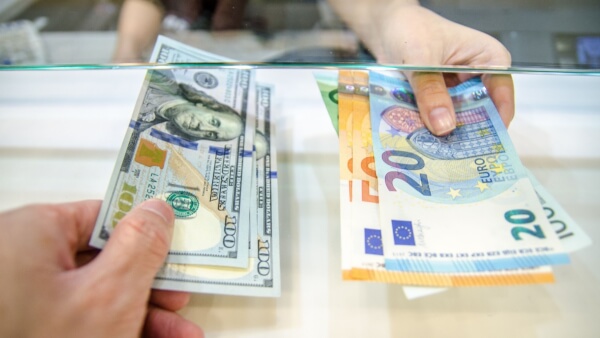
Going abroad and in need of foreign currency? In this article, we'll explore where to exchange currency - from good deals to the places you should avoid.
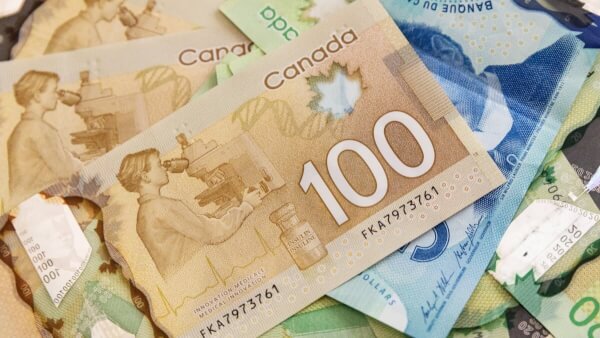
Heading abroad? Here’s everything you need to know about ordering Canadian dollars in the US.
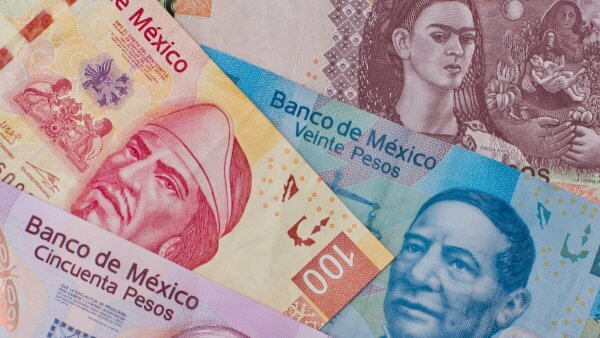
Heading abroad? Here’s everything you need to know about ordering pesos with Chase bank.
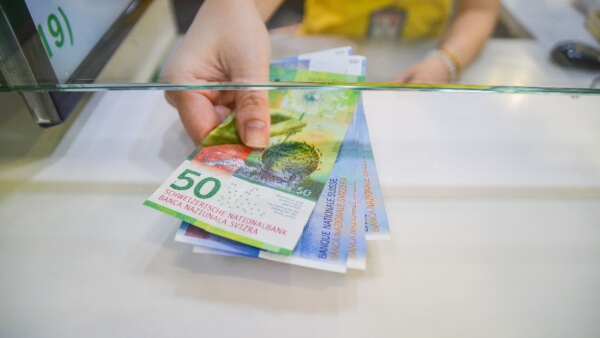
Heading abroad? Here’s everything you need to know about ordering euros with PNC bank.
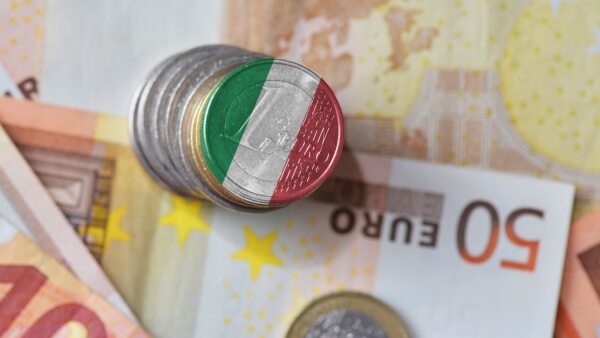
Heading abroad? Here’s everything you need to know about ordering euros with Bank of America.